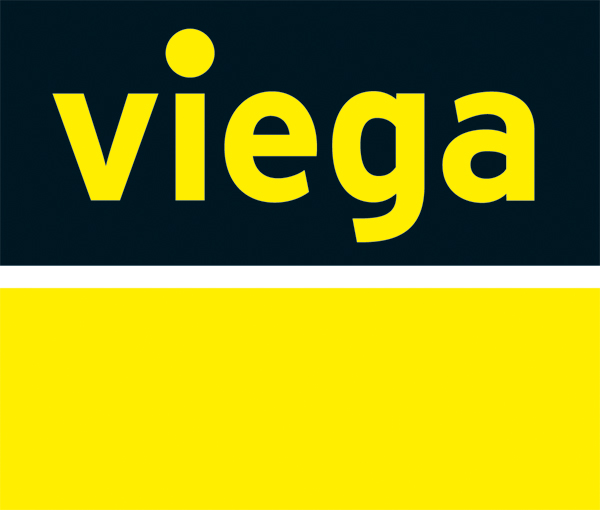Following solid revenue growth in 2013, the majority of U.S.-based engineering and engineering/architecture (EA) firms expect more of the same this year, according to BD+C’s 2014 Giants 300 report. Of the 68 engineering and EA firms that reported a forecast for 2014, 56 companies expect revenue to be higher, with the average growth rate at nearly double digits (9.1%). The same group saw revenue increase 16% on average in 2013.
As the green building movement shifts focus from the new construction sector to existing buildings, engineering firms are well positioned to capitalize on the influx of dollars heading into the reconstruction and retrofit markets. Firms, in turn, are adding services like commissioning (BECx, Cx, and RCx), energy retrofit design, energy auditing, energy modeling, and facilities management consulting in an effort to cater to this growing segment.
San Francisco-based Mazzetti is seeing growth from its recently launched facilities management consulting business, especially on the East Coast. The firm works directly with building owners and their facilities teams to assess how their facilities can operate more efficiently. Mazzetti also advises owners on the best ROI in terms of equipment replacement or repair.
TOP ENGINEERING FIRMS
2013 Engineering Revenue ($)
1 Fluor Corporation $585,150,000
2 Arup 136,464,506
3 Day & Zimmermann 130,576,072
4 WSP Group 124,400,000
5 Affiliated Engineers 104,121,000
6 KPFF Consulting Engineers 94,025,000
7 Syska Hennessy Group 93,902,508
8 Vanderweil Engineers 80,334,000
9 Simpson Gumpertz & Heger 71,640,000
10 AKF Group 67,487,000
SEE FULL LIST
TOP ENGINEERING/ARCHITECTURE FIRMS
2013 EA Revenue ($)
1 Jacobs $3,684,260,000
2 AECOM Technology Corp. 1,769,120,000
3 Parsons Brinckerhoff 316,350,284
4 URS Corp. 280,333,336
5 Burns & McDonnell 160,922,332
6 Thornton Tomasetti 145,038,225
7 SSOE Group 114,501,762
8 CRB 96,860,000
9 Wiss, Janney, Elstner Associates 88,887,000
10 Dewberry 78,770,181
SEE FULL LIST
“We often grow this relationship into more of a capital planning consultant role,” says Walt Vernon, PE, LEED AP, EDAC, Principal and CEO of Mazzetti. “The results are that we have significantly grown our Nashville office, because we’ve increased our work. We’ve hired specialists in this area, which creates a new service line for us.”
Giants 300 coverage of Engineering Firms brought to you by Viega www.viega.us
For TLC Engineering for Architecture, increased emphasis on energy and water services, especially energy audits, is paying dividends. The firm has dedicated staff in each operating unit to focus on these services, with huge success, according to the firm’s CEO and Chairman, Debra A. Lupton, AIA, LEED AP BD+C.
Seeing a growth in demand for water design services, Magnusson Klemencic Associates developed its proprietary Strategic Water Planning tool (http://tinyurl.com/MKAwater) to aid in the assessment and optimization of a project’s global water supplies and demands. The tool takes into account the characteristics of a project—including the site, building type, size, and location—to provide a comprehensive, holistic, and accessible picture of water inputs and outputs, such as stormwater runoff, precipitation, wastewater, evaporation, potable water, and ground infiltration.
The firm has utilized the tool to develop net-zero-water design schemes for several projects, including the Sylvan Theatre at the base of the Washington Monument in Washington D.C.
BIM/VDC/IPD GROWTH
Advanced project modeling and team collaboration continue to play a vital role on engineering projects. More than three-quarters (76%) of the engineering firms that participated in the Giants 300 survey reported at least some design revenue from BIM/VDC-driven building projects. These firms report that, on average, 47% of their total design billings in 2013 were derived from BIM/VDC-driven projects.
Several firms reported innovations in this area:
HNTB has developed a BIM workflow that allows its aviation clients to quickly transfer both geometric and non-geometric data from a project’s BIM model directly into their facility management system, like Tivoli Maximo Asset Management. The process was employed most recently on the Denver International Airport’s Hotel and Transit Center Program. The facilities team plans to use the BIM data for ongoing operations and maintenance management, as well as feasibility studies and planning for future projects on the site.
The firm’s sports practice launched a fully parametric design tool that replaces its 2D bowl and sightline design program. The new tool allows for fast, dynamic design iteration in a 3D BIM environment.
Thornton Tomasetti, through its Core Studio computational modeling and R&D group, has developed dozens of breakthrough engineering design and analysis tools, including a cloud-based, rapid-iterative design program (see BIM Giants section, page 54), building performance analysis software, and a series of custom plug-ins for commercially available BIM/VDC/CAD tools. Custom plug-ins include a parameter explorer, a suite of automated drawing production tools, and programs that check and improve the accuracy and quality of BIM models. Core Studio also builds physical prototypes using its in-house 3D printer.
Robins & Morton is carving out a niche in the emerging integrated project delivery (IPD) field. The construction and engineering giant has worked on four pure IPD projects with multi-party agreements—including the Alfond Center for Health at MaineGeneral Medical Center in Augusta, Maine, a BD+C 2014 Building Team Award winner—and completed 44 projects utilizing many of the elements and management practices of the IPD approach.
Read BD+C's full 2014 Giants 300 Report
Related Stories
Multifamily Housing | Mar 14, 2023
Multifamily housing rent rates remain flat in February 2023
Multifamily housing asking rents remained the same for a second straight month in February 2023, at a national average rate of $1,702, according to the new National Multifamily Report from Yardi Matrix. As the economy continues to adjust in the post-pandemic period, year-over-year growth continued its ongoing decline.
Affordable Housing | Mar 14, 2023
3 affordable housing projects that overcame building obstacles
These three developments faced certain obstacles during their building processes—from surrounding noise suppression to construction methodology.
Healthcare Facilities | Mar 13, 2023
Next-gen behavioral health facilities use design innovation as part of the treatment
An exponential increase in mental illness incidences triggers new behavioral health facilities whose design is part of the treatment.
Student Housing | Mar 13, 2023
University of Oklahoma, Missouri S&T add storm-safe spaces in student housing buildings for tornado protection
More universities are incorporating reinforced rooms in student housing designs to provide an extra layer of protection for students. Storm shelters have been included in recent KWK Architects-designed university projects in the Great Plains where there is a high incidence of tornadoes. Projects include Headington and Dunham Residential Colleges at the University of Oklahoma and the University Commons residential complex at Missouri S&T.
Mixed-Use | Mar 11, 2023
Austin mixed-use development will provide two million sf of office, retail, and residential space
In Austin, Texas, the seven-building East Riverside Gateway complex will provide a mixed-use community next to the city’s planned Blue Line light rail, which will connect the Austin Bergstrom International Airport with downtown Austin. Planned and designed by Steinberg Hart, the development will include over 2 million sf of office, retail, and residential space, as well as amenities, such as a large park, that are intended to draw tech workers and young families.
Performing Arts Centers | Mar 9, 2023
Two performing arts centers expand New York’s cultural cachet
A performing arts center under construction and the adaptive reuse for another center emphasize flexibility.
Architects | Mar 9, 2023
HLW achieves Just 2.0 label for equity and social justice
Global architecture, design, and planning firm HLW has achieved The International Living Future Institute’s (ILFI) Just 2.0 Label. The label was developed for organizations to evaluate themselves through a social justice and equity lens.
Architects | Mar 9, 2023
A. Eugene (Gene) Kohn, Co-Founder of Kohn Pedersen Fox, dies at 92
A. Eugene (Gene) Kohn, FAIA RIBA JIA, Co-founder of international architecture firm Kohn Pedersen Fox, died today of cancer. He was 92.
Affordable Housing | Mar 8, 2023
7 affordable housing developments built near historic districts, community ties
While some new multifamily developments strive for modernity, others choose to retain historic aesthetics.
Architects | Mar 8, 2023
Is Zoom zapping your zip? Here are two strategies to help creative teams do their best work
Collaborating virtually requires a person to filter out the periphery of their field of vision and focus on the glow of the screen. Zoom fatigue is a well-documented result of our over-reliance on one method of communication to work. We need time for focus work but working in isolation limits creative outcomes and innovations that come from in-person collaboration, write GBBN's Eric Puryear, AIA, and Mandy Woltjer.


















